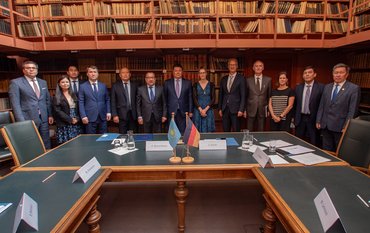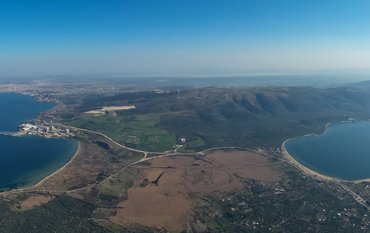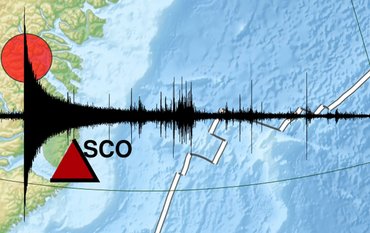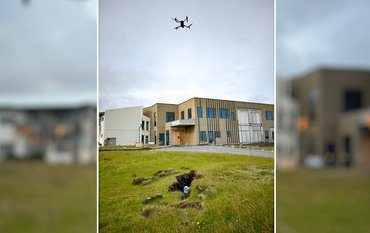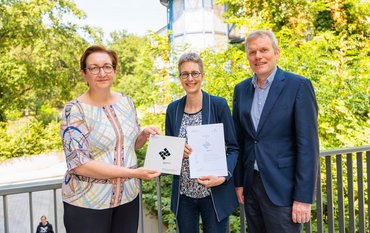Dr Tatiana Savranskaia started her research in February 2022 as part of an Alexander von Humboldt Foundation fellowship for postdoctoral researchers in Section 2.3 "Geomagnetism". The host is Dr Monika Korte.
The Alexander von Humboldt Foundation awards the Humboldt Research Fellowships to researchers from abroad with above-average qualifications. Postdoctoral fellows who are at the beginning of their academic career are given the opportunity to spend 6-24 months researching at a German research institution. They receive a monthly scholarship of 2,670 euros.
Over the next two years, Tatiana Savranskaia will investigate how well time series of cosmogenic isotopes, especially 10Be, from sediment cores are suited to improve global reconstructions of the Earth's magnetic field in the past. Cosmogenic isotopes are produced by the fission of cosmic rays, which are shielded by the Earth's magnetic field. Therefore, the production rates of cosmogenic nuclides contain information about changes in the magnetic field strength in the past.
The paleomagnetic field models developed so far in Section 2.3, which are used to study processes in the Earth's core as well as to estimate the shielding effect, hardly consider the information from cosmogenic isotopes so far, because it must be taken into account that environmental influences can affect the magnetic signal. The aim of Savranskaia's work is to separate these signals, which are still poorly understood, in order to be able to use the magnetic field component.
Tatiana Savranskaia graduated with a Master of science in reservoir Geosciences and Engineering from a joint programme of the Russian Tyumen State Oil and Gas University and the IFP School (L'institut Français du pétrole) in Rueil-Malmaison, France. From 2017 to 2020, she was a PhD student at the Institut de Physique du Globe de Paris - Université de Paris, where she started working on beryllium isotopes and the properties of sedimentary data series in the paleomagnetism group there.



![[Translate to English:] [Translate to English:] Abror Gafurov von dem Schriftzug "Welcome to Azerbaijan" und den UN und COP Logos](/fileadmin/_processed_/2/5/csm_2024_11_Baku_COP29_Abror_Gafurov_1042faec82.jpeg)



![[Translate to English:] Martin Herold standing in front of the library on the Telegrafenberg](/fileadmin/_processed_/c/d/csm_Martin_Herold_d385ee4dd9.jpeg)
![[Translate to English:] Many people are listening to a presentation in the GFZ lecture hall.](/fileadmin/_processed_/c/a/csm_1_Bild1_hell_b9c0e9f5ed.jpeg)





![[Translate to English:] Both scientists sitting on stools in front of a wall of books in the Telegrafenberg library](/fileadmin/_processed_/6/6/csm_Buiter_Castell_DORA_4_e87cb1ea18.jpeg)
![[Translate to English:] Gruppenbild mit 4 Personen](/fileadmin/_processed_/8/d/csm_20241017_GFZ-Emmerman-Medal-005_web_reinhardtundsommer_21a414fa4a.jpeg)






![[Translate to English:] Ice landscape with five red tents](/fileadmin/_processed_/8/9/csm_Zeltlager_auf_dem_Eis_Urheberin_Jenine_McCutcheon_5ced2d523b.jpeg)



